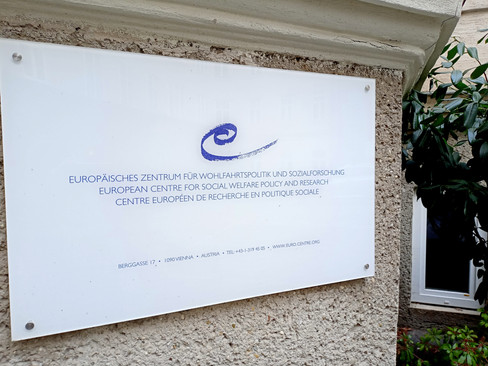Reflection on Two Memorable Weeks in Vienna and Investigating Retrospective Childhood
- Nataša Simeunović Bajić
- Feb 13, 2024
- 3 min read
I am a researcher, scholar, cultural practitioner, creative thinker, interdisciplinary artist, and poet. Furthermore, I hold the position of president at the NGO Society for Creative Initiatives, RE.KreAKTa, where I actively contribute to fostering creativity and innovation within the community. Last but not least, I am a mother of three children.
In addition to my research endeavors, I am deeply involved in education. At the University of Niš, I teach courses such as intercultural communication, creative industries, and media and ecology. Throughout my career, I have authored over 60 research articles and book chapters, along with several poems and two monographs. My work spans various topics within social, cultural, and media studies, reflecting my diverse academic interests. Additionally, I have received numerous fellowships and research grants, further demonstrating my commitment to advancing knowledge in this field.
Childhood experiences play a crucial role in shaping an individual’s life, including their physical and mental health, social relationships, and overall well-being. In recent years, there has been a growing interest in understanding the impact of early life experiences on health and well-being in later life. This interest has led to an increased focus on studying the childhood experiences of women, particularly in Mediterranean countries, where cultural and social factors can significantly influence their lives.
The focus was on the impact of childhood socio-economic conditions on various aspects of life for women aged 65 and above in Spain, Italy, and Greece, highlighting the key differences and similarities between the three countries. The preliminary conclusion is that individuals who experienced adverse childhood conditions, such as poverty, poor health, and low education, were more likely to face inequalities in later life.
By shedding light on the retrospective childhood experiences of women in Mediterranean countries, I aimed to contribute to a broader dialogue on empowerment, gender equality, and cultural understanding. The insights gleaned from this journey serve as a foundation for advocating for meaningful societal change and fostering inclusive environments where every individual’s story is valued.
Access to SHARE data, the possibility of linking it to other relevant data sources, and the expertise and tools provided by the European Centre for Social Welfare Policy and Research all contribute to creating an ideal environment for conducting high-quality research on retrospective childhood and related issues in the Mediterranean region.
I'm very satisfied with my acquired knowledge and experiences from the European Centre, and I would like to thank Cassandra Simmons and other European Centre staff for their support.
Although this was not my first visit to Vienna, it was still the longest. And every time Vienna offers something new, this time I got to know the work of the European Center by doing research that was particularly interesting for me. It was very cold and dry in Vienna on those days, but I used my morning walks and afternoon departures from work to enjoy the architecture of the streets I passed through.
Vienna’s interculturalism is evident in its multifaceted identity as a global hub for arts, music, and intellectual discourse. The city’s historical significance as a meeting point for various cultures is reflected in its architectural landmarks, culinary traditions, and artistic expressions.
My research at the European Center provided an enriching opportunity to explore the retrospective childhood experiences of women in Mediterranean countries through the lens of the SHARE database. This endeavor was deeply personal, weaving together academic inquiry with personal reflections and cultural immersion. As I continue to analyze and disseminate my findings, I am committed to amplifying diverse voices and advocating for positive societal transformation.
My research trip to Vienna had a profound impact on both my academic endeavors and my personal development. The city's unique combination of historical grandeur, cultural diversity, and academic brilliance gave me a comprehensive grasp of its significance. I left Vienna with a great deal of respect for this extraordinary city, in addition to some insightful study findings.
In conclusion, my time in Vienna was an immersive experience that deepened my understanding of academia, culture, and history. It was a privilege to explore this captivating city and engage with its multifaceted offerings.












Comments